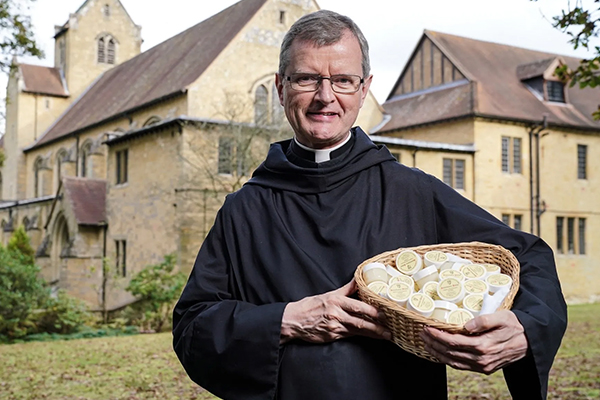Patrick Hudson discovers some of the things monks do when they are not praying
Monastic ruins in the British Isles are generally dominated by the vertical: walls and pillars that no longer support a roof, the empty tracery of enormous windows, the patch of sky where a spire used to be. It’s only once you’ve wandered around these that you register the horizontal – how much space you are wandering in. The great monasteries required enormous lands for pasture, cultivation, manufacture and however else they diversified the portfolio that sustained the life of prayer.
English historians in particular have looked askance at these enterprises as incriminatory worldliness (while also denigrating monastic spirituality – but who’s so fussed about consistency, anyhow?). They miss the point, of course. The Rule of St Benedict requires monks to look after themselves: “When they live by the labour of their hands, as our fathers and the apostles did, then they are really monks.”
This work remains embedded in monastic life, not simply to fill the gaps between the hours but as an integral part of its sustenance. Monasteries are expected to look after themselves, depending not on charitable support but on their own sources of income, and the work monks and nuns undertake must be spiritually nourishing while keeping them in the black. Holy pictures and rosary beads in the gift shop aren’t always enough.
Farming has been the traditional side-hustle, its rhythms broadly complementing the monastic day and its products feeding the community. Though no monasteries have embraced fully-industrialised factory farming and crop-spreading by drones (yet), a few continue cultivation: the Benedictines at Worth, though more noted for their school, keep a flock of 60 Lleyn ewes; besides praying for the soul of Napoleon III, their brethren at Farnborough keep 30 Wiltshire Horn sheep, as well as chickens and bees.
Many monasteries go in for bee-keeping (perhaps the habits are suited to it) and flog an inventive range of hive products. Quarr Abbey on the Isle of Wight sells honey through its farm shop, while St Augustine’s in Chilworth started using the surplus beeswax from its hives to produce furniture polish – and then lip balm – and then skin cream. The monks now sell skincare products in a range of flavours. If it pays the bills, then why not?
The Trappists at Mount Saint Bernard Abbey in Leicestershire concluded in 2013 that the dairy farming which had kept them busy was no longer viable. They turned to their order’s tradition of brewing and found both a market and a method suited to their rule. When he blessed the brewery in 2018, Dom Erik Varden (now the Bishop of Trondheim in Norway) said that it provided “a parable for our monastic life, with the Lord as virtuoso brew-master” making something rich and sophisticated out of the simplest ingredients.
Monastic manufacture is well-placed to benefit from the boom in ethical shopping – Glenstal Abbey in Co. Limerick finds “Made by Monks” a useful advertising tag for its candles and bookbinding. Not made to meet demand, they have a rarity value besides standards guaranteed not by a market watchdog but (in the final estimation) by God. Profits are just part of the picture. In France, the Carthusians who make Chartreuse recently refused to expand production of their popular liqueur because some of the ingredients are endangered plants and more distilling would leave them too tired for prayer. By contrast, Buckfast Abbey sold the licence to make their eponymous tonic wine and now finds itself tarred by the antisocial consequences of commercially-marketed “Buckie”.
It’s a tricky path to tread, one that no economist can quite describe. The closest we could come to an equation might be the words of Psalm 104: “You make the grass grow for the cattle and the plants to serve man’s needs, that he may bring forth bread from the earth and wine to cheer man’s heart.”
Patrick Hudson is a staff writer at The Tablet.



 Loading ...
Loading ...
What do you think?
You can post as a subscriber user ...
User comments (0)